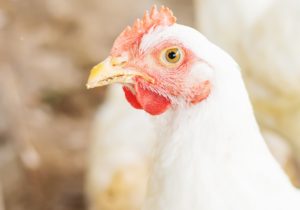Wisconsin’s agricultural community is banding together as a challenging situation unfolds for poultry producers across the state. The closure of Pure Prairie Poultry, a Minnesota processing plant, has created challenges for contracted growers in Wisconsin. These growers, along with others in nearby states, now face an unexpected burden as they must care for thousands of birds without any financial support.
With about 476,000 birds spread across 11 flocks in Wisconsin alone—equally divided between meat and breeder birds—producers are grappling with the responsibility of caring for their livestock without the expected income. The urgency of the situation has prompted the Department of Agriculture to step in and assist impacted farmers.
“We first learned about Pure Prairie’s financial troubles on September 30th,” Randy Romanski, Wisconsin Secretary of Agriculture, Trade and Consumer Protection (DATCP) explained. “Their initial bankruptcy filings had occurred a week and a half earlier. Yet, we were only notified afterward. It’s crucial that we understand our authorities and how best to support these farmers during this tough time.”
Despite the challenges, the department is actively seeking ways to help. “While we don’t have the authority to take possession of the birds or euthanize them outside of an animal disease emergency, we are doing our best to connect farmers with the resources they need,” Romanski stated.
To aid farmers, the department offers various services through the Farm Center. These include financial consultation and also mental health support, recognizing the emotional toll of such unexpected circumstances. “Farmers care deeply for their animals, and this stress can be overwhelming,” Romanski noted. “We want them to know that mental health counseling is available, and they can speak confidentially with our staff.”
As the situation develops, the community is coming together. Many farmers have turned to social media to coordinate efforts, offering birds to those willing to take them in. “While they can’t sell these birds due to contract obligations, many are finding ways to give them a new home,” said Romanski.
The Wisconsin agriculture sector has always shown resilience in the face of adversity, and this situation is no exception. The DATCP continues to seek updates and also communicate with farmers to navigate this unique challenge effectively.
